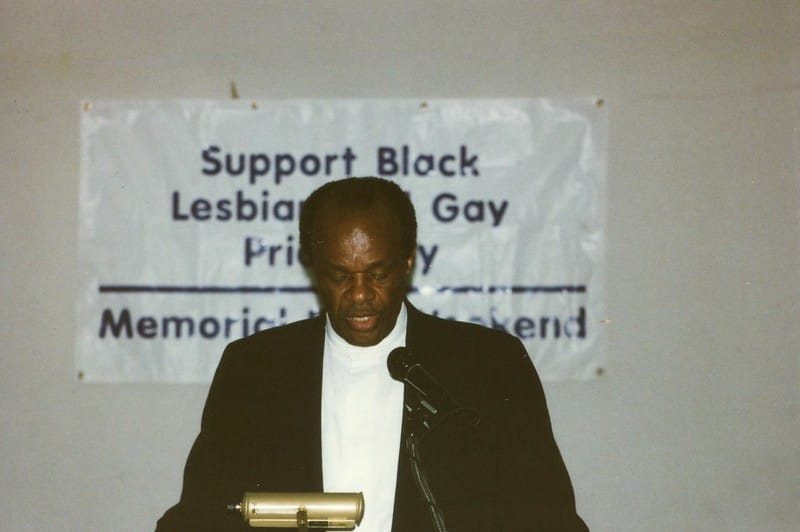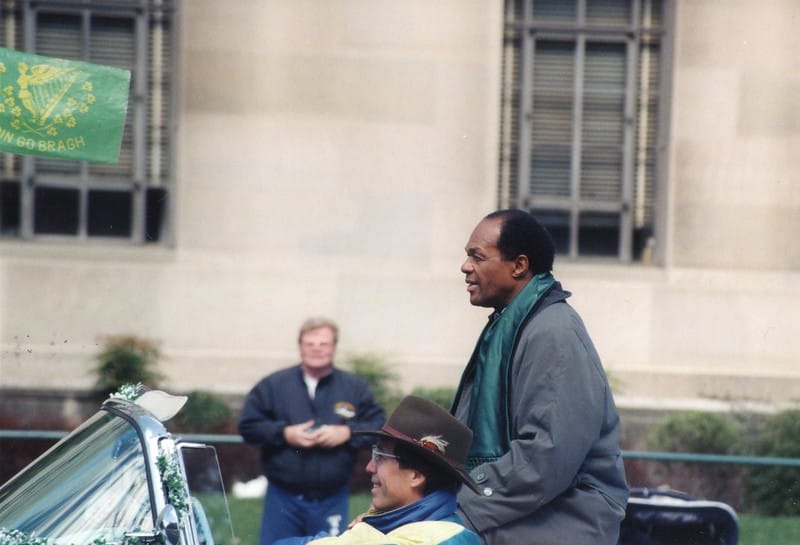What can be done about your expensive Pepco bill?
Financial assistance, energy audits, and avoiding third-party suppliers can help.
The "Mayor for Life" made an impact through activism, community development, and a non-nonsense leadership style.

Our love for Mayor Barry, like most loves, is complex. Yes, we know about the cronyism in his administration. Yes, we know about the womanizing. And I’ll admit, he was way out of pocket when he talked about Asian business owners having “dirty shops” in Ward 8.
And, of course, no one will let us forget his substance abuse (which is now classified by many as a disease). I remember several instances when I told people where I was from and their first response was, “Oh! That’s where the mayor was smoking crack, right?” Insert a hard eye roll.
Mayor Barry didn't hold back when confronted by reporters who rubbed him the wrong way. He could be seen as disingenuous and crude — or as a straight shooter. I have relatives who behave the same way. I don’t agree with their ways, but I still love them.
Mayor Barry’s advocacy for poor, marginalized, taxpaying Black and Brown residents was exceptional — undoubtedly due to his early days as an activist. He was president of the student chapter of the NAACP at LeMoyne College in Memphis, where he attended undergrad. He helped organize an NAACP chapter while attending Fisk University, in Nashville, for grad school. And he was a founding member of the Student Nonviolent Coordinating Committee, a civil rights organization that participated in freedom rides, conducted voter registration campaigns, and played a crucial role in passing the Voting Rights Act of 1965.
He arrived in D.C. in 1965 as a Dashiki-wearing civil rights activist. His passion for equality and justice was noticed by several Washingtonians. He won a seat on the school board in 1971 and was quickly elected president. He joined the D.C. Council in 1975 as an at-large member. He went on to serve as D.C. mayor from 1979 to 1991, then Ward 8 councilmember from 1993 to 1995. He was elected mayor again, serving a term from 1995 to 1999, and he held the Ward 8 councilmember seat from 2005 until his death in 2014.
Mayor Barry was a brave, clever, and savvy politician. At a time when the city was finally gaining home rule, we needed a champion at the helm. He took on Congress, critics, and the media for us. He was inspirational. He was the people’s mayor — for real.

Mayor Barry also struggled with drug addiction for 25 years, and this compulsion led to his arrest on charges of possession of cocaine in an FBI sting in January 1990.
Recently, a tasteless marketing campaign by a mediocre local pizza company tried to profit from Barry’s dependency. In late October, &pizza created a new dessert called “Berry Knots,” which were anything but sweet. The knots were sprinkled with powdered sugar and captioned “so good it’s likely a felony.”
Most people in D.C. knew exactly what that image and caption were referring to — and it was a huge insult. Here we go again, 34 years later, with another sophomoric, disrespectful joke about a man’s weakness. It wasn’t funny then, and it’s not funny now.
This man was loved by close friends and family. Can you imagine someone you love unconditionally being dragged for their past mistakes postmortem? Haven’t his wife and family endured enough over the last three decades? Every dart of racist, demoralizing venom that outsiders throw in his direction hurts his family and incenses Black Washingtonians, many of whom went to the streets in protest.
“It’s always a joke. His one downfall, which was the crack thing,” says Ron Moten, peace activist and co-founder of Don’t Mute DC, who organized demonstrations against &pizza. “You know, they hear that noise versus how he created [the Reeves Center] on 14th Street, which sparked the rebirth of U Street after the riots [and] the summer job program that the whole country takes a model from. He showed us how to move without fear, without worrying about the repercussions.”
Thousands of natives, including yours truly, fondly remember how Mayor Barry fought to build the Summer Youth Employment Program. I specifically remember doing light office work at Taft Junior High in 1989. It wasn’t hard work, but knowing I had to report on time every day and follow directions from a supervisor to get paid taught me a lot about how the real world works.

Mayor Barry’s vision for D.C. always included neighborhoods on the eastern side of the city. To him, Ward 8 — home to the highest number of D.C.’s low-income residents — deserved the same growth, opportunities, and amenities as the rest of the city. After being elected as Ward 8 councilmember in 1992, he said, “The No. 1 priority here is jobs. The residents of Ward 8 are the last ones people think of when they are hiring. That has got to change.”
EZ Street, radio personality and Executive Producer and Host of “Live From the District” explained how Mayor Barry made sure African Americans in D.C. benefited from development. “He put rules into place that required that African Americans be in the room to be considered for contracts. There is no other mayor — Black mayor — who did this much at the time.”
To curb the number of liquor stores opening in the area, he introduced the Ward 8 Alcohol License Moratorium Act of 2013. The following year, he sought to create new developments in Anacostia by introducing three bills known as The Big K project. It reimagined Martin Luther King Avenue as a fabulous main street, which we see coming to fruition today. In his proposal, he wrote, “Ward 8 is also in dire need of the investment and retail development that this project provides. Martin Luther King Jr. Avenue, S.E. has not seen the new construction of residential buildings in over 40 years. Thus, this project is critical to the redevelopment of Anacostia.”
Since his passing in 2014, D.C. has named the Summer Youth Employment Program and a street after our “Mayor for Life.” The city placed an eight-foot bronze statue of him in front of the Wilson Building. And there’s a petition to get Ballou High School renamed Marion Barry Jr. High School. The loyalty will go on for generations.
Yes, Mayor Marion S. Barry, Jr. was imperfect, but he was committed. And sometimes, it’s the commitment that wins forgiveness and loyalty. We learned a lot from his resilience. Ron Moten put it best, “The biggest example we learned from him is that when you fall you get your ass back up.”
With your help, we pursue stories that hold leaders to account, demystify opaque city and civic processes, and celebrate the idiosyncrasies that make us proud to call D.C. home. Put simply, our mission is to make it easier — and more fun — to live in the District. Our members help keep local news free and independent for all: